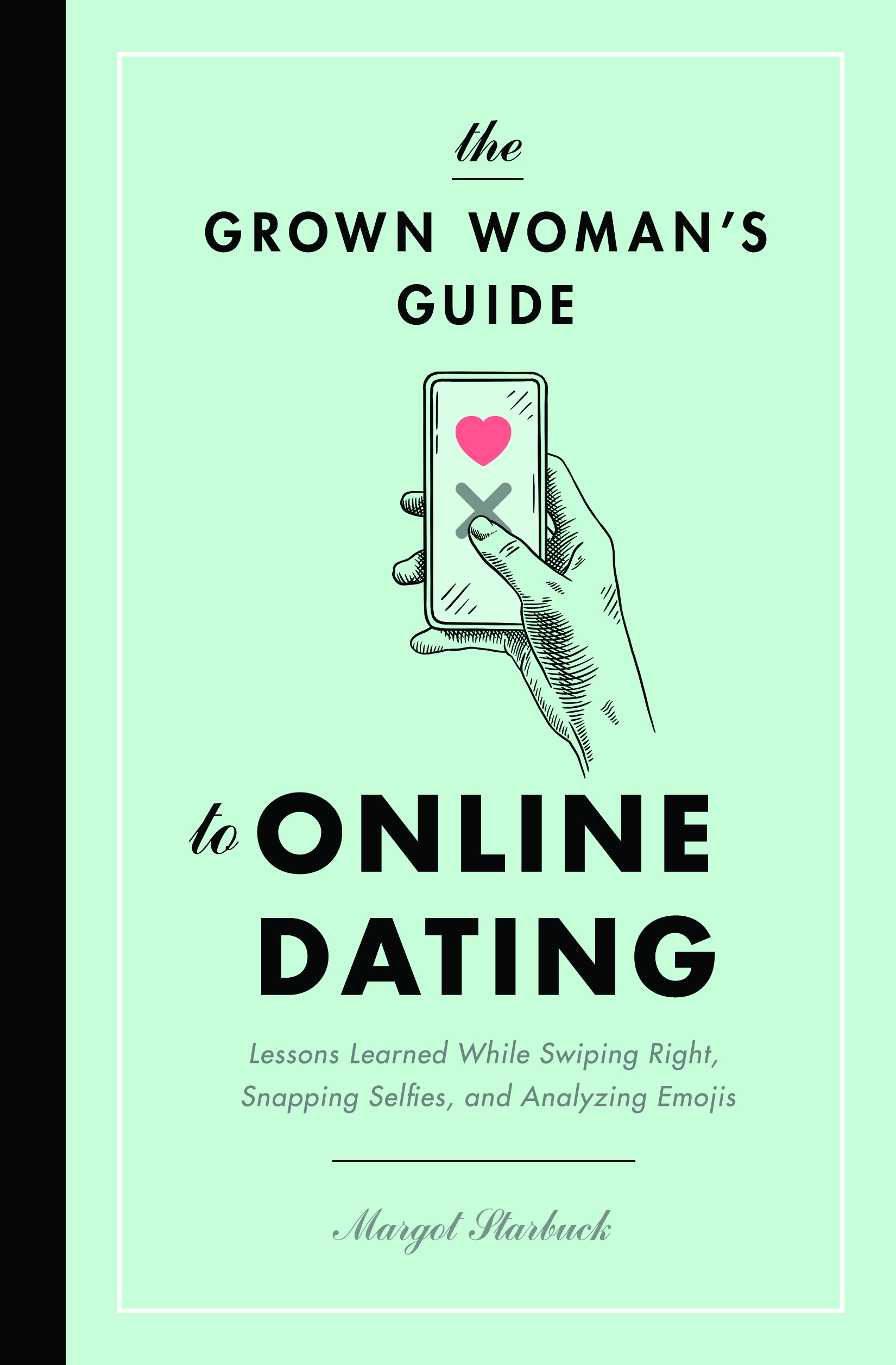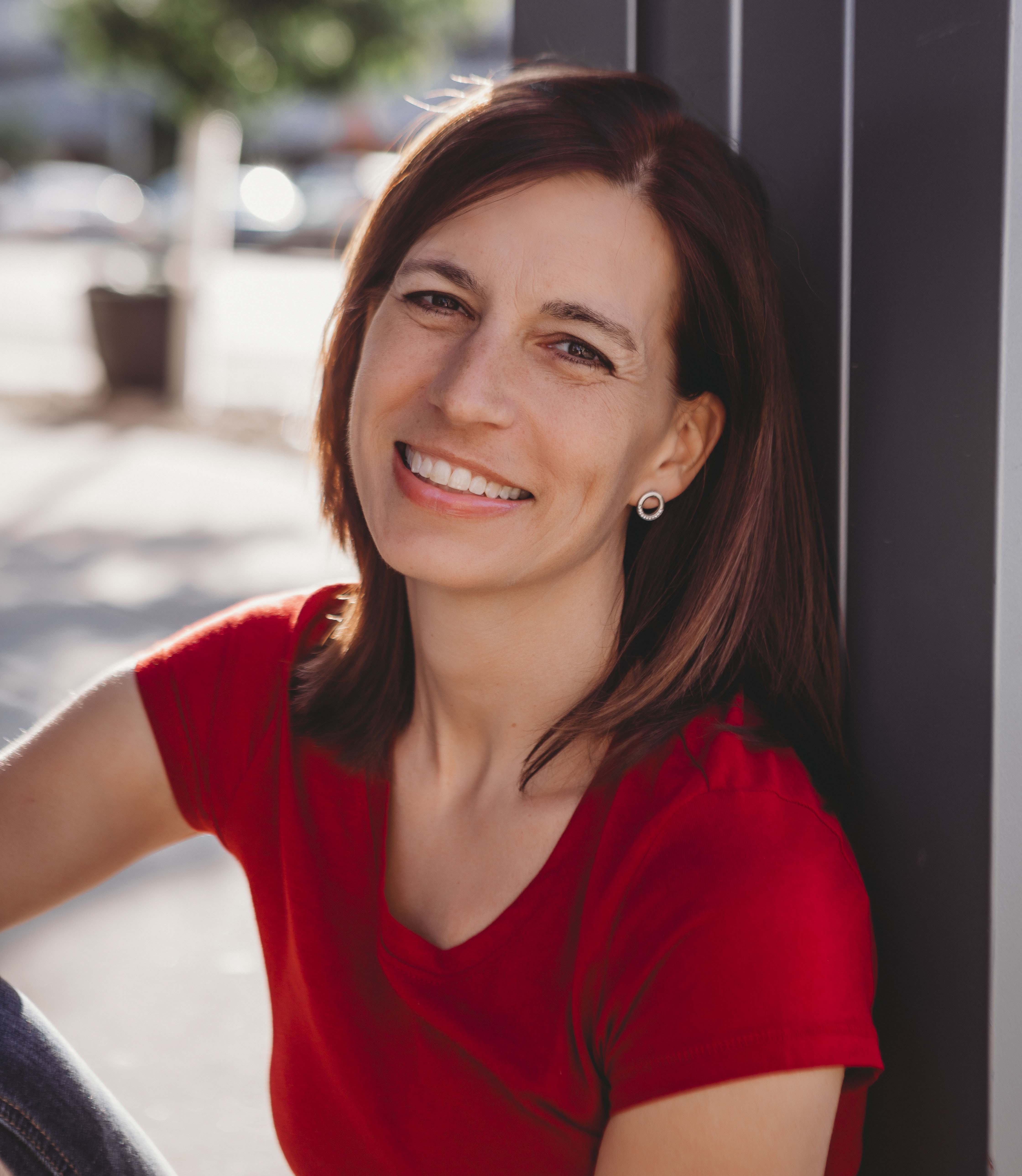
In her late 40s, Margot Starbuck found herself in unfamiliar territory: the world of dating.
Divorced after two decades of marriage, and having allowed herself several years to heal, the author of more than 30 books decided to dip her feet into online dating. Her most recent release, The Grown Woman’s Guide to Online Dating: Lessons Learned While Swiping Right, Taking Selfies and Analyzing Emojis, came out of her personal experience and in-depth research.
Today, she shares pertinent information with women of all ages who find themselves in the unknown world of online dating, including how to get started, how to be authentic, and how to stay safe online.
Can you start by telling the readers who are new to this how to get started?
First, you need to choose the site or sites you will use. There are free sites, sites that are free for an introductory period, sites where you pay from the start, and sites where you can pay for extra perks.
The easiest rule of thumb when considering what site or sites to use is “you get what you pay for.” On the entirely free sites, you will run into many characters who may not share your values. There will be good eggs, but they may be few and far between. In my experience, people who use paid sites are more serious about finding a match because they are more invested.
Once you know whether you want to use a paid or free site, one of the best ways to narrow it down to one or two is to get input from someone in your geographical area who is similar in age, gender, and faith preferences. The best site for me in urban North Carolina may or may not be the best for someone in a rural area.
What sites have been best for you and why?
Match and Bumble have worked best for me. I really like the search features on Match. You can search by things like geography, age, and faith preferences. And when you use the desktop version, you can also search by specific keywords, like “artist,” “drummer,” or “Jesus.”
Bumble was created by a woman. On it, you either swipe right if you like someone or left if you don’t. If you both swipe right, it is the woman’s responsibility to initiate a conversation. Because of this, I believe there are likely more secure men on Bumble.
Eharmony has a good reputation, but it’s also pricey. And ChristianMingle is comforting because the word Christian is in the name, but I have not found great matches there.
Tell us the three most important things to consider when building a profile.
1. Include what makes you uniquely you. Imagine how many women write "I love the beach. I love coffee. And I love my family." Those things may be true, but you waste precious real estate by including them because they are not unique to you. So instead, I might say, “On Saturday mornings, I listen to Earth, Wind and Fire while roller-skating on a local trail.”
If you have trouble identifying things that are unique to you, ask your friends for help because your friends know what is special about you.
2. Choose photos well. Include both headshots and full body. We can be tempted to only show headshots or post that picture from six years and 30 pounds ago, but we don’t do ourselves any favors by not having a current photo. And use a variety of photos. Post a picture of you playing baseball with your favorite nephew or one of yourself at painting class or holding your favorite book. When you get more specific, you give men something to take an interest in and respond to.
3. Don’t be negative, and don’t overshare. It’s easy to complain—about dating apps, about men, about meeting men on dating apps—but you have so little real estate to make a good impression that negativity is a waste of space. Avoiding oversharing is also important. Your former depression or addiction may be a part of who you are, but your profile is not a place to share it. You don’t have to be deceptive, but definitely be selective.
What are some red flags to be aware of when you are looking to make a connection?
Some are really obvious. If he announces his favorite sexual position, you know to steer clear. But some things are less obvious. If a guy is overly eager to meet quickly or, on the flip side, is overly reluctant to meet in person, those can both be red flags. (My girlfriend, Char, insists that the man who stood me up for a date was likely in prison.)
Another thing to pay attention to is whether the guy’s profile is overly disparaging of former partners or, conversely, if it’s too idealistic. If he says something like, “I’m a workaholic now, but once I meet you, I’ll be different," or “I want someone who completes me,” he may have an unrealistic view of relationships.
Pay attention and notice what your gut is telling you.
As a Christian woman on a dating site, how do you approach the topic of sex?
We know in our culture that checking the Christian box doesn’t mean you share the same values when it comes to sex. Literally, anyone can check that box, and it may just mean, “My grandparents had me baptized as a baby.”
If you are saving sex for marriage, make that plain. You can even drop a hint in your profile by saying something like, “I’m not here for a hook-up” or “I’m looking to build a friendship.”
Here are some code words and phrases to notice when looking at men’s profiles: “open-minded,” “romantic,” “down for Netflix & chill,” and “I expect my partner to be passionate.” Those all can be code for “I want to sleep with you as soon as possible.”
I have a friend in her 30s who is very up-front about her commitment to save sex for marriage, and she always brings it up within the first couple dates. Because sex and dating is often assumed in our culture (even among those who check the Christian box), I think this is so smart. It takes courage, but it’s so important.
You mentioned trusting your gut earlier. Can you elaborate on that? Do you have an example of when this worked for you?
Yes, I have been catfished—when someone is not who they say they are. He said he was a man of faith, but he used overly religious jargon that didn’t sound genuine. He said he was from Norway but living in Atlanta. I don’t really know what a Norwegian accent sounds like, but his voice just didn’t sound right to me. And I didn’t get the sense that he had any friends or community of support. I mentioned it to a friend who did some research. She found that though he claimed to be an architectural professional, he didn’t have a profile on LinkedIn. (That’s not a complete deal-breaker, but most professionals are on LinkedIn.) But he also only had three Facebook friends, and my friend was like, “Margot, he’s not real.” So I ended that one.
Let’s talk specifically about safety. What are practical things women can do as they invest in the online dating world?
For an overall posture of safety, you should be suspicious. I know that sounds awful, but don’t assume someone is who they say they are until you’ve seen evidence.
Be smart and do your research. It’s really easy with Google and social media, and it may save you time and heartache. One guy I connected with said he thought it was stupid for people to Google their matches. So I googled him and found a kind of paparazzi shot of him walking out of a courthouse in a high-profile criminal trial.
Also, don’t share your personal information, your address, or any photos that you don’t want shared with others. If you want to be particularly careful, get a Google phone number, so your match doesn’t see your real number until you are ready to share it.
Also, involve your girlfriends. If something doesn’t feel right, run it past them. Have them help you browse profiles, and when you are ready to meet a match in person, let a friend know where you will be, meet in a very public place and take your own transportation. If you do those three things, it can really protect you.
Before I let you go, what is your advice for getting out of a relationship or even just out of a connection after meeting in person once or twice?
My neighbor friend in her 30s has a wonderful template for this. Simply tell them, "I’ve enjoyed meeting you. I don’t think we’re a match, and I wish you well." I think that language of “we’re not a match” is really helpful in saying goodbye.

Photo Credit: ©iStock/Getty Images Plus/Tonktiti



